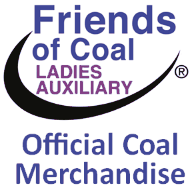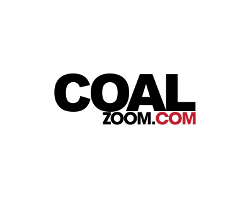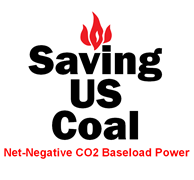
 











|
Signature Sponsor


Authors: Fred Palmer and Frank Clemente PhD, Principals, Coal Is the Cornerstone, Inc. April 18, 2025 - Mission: This is the lead part of a series of articles from Coal is the Cornerstone, Inc. identifying and documenting the societal value of coal. Over the past two decades, rhetoric and hyperbole have camouflaged the continuing contributions coal makes to the lives of virtually every human on the planet. Energy is the sine qua non of life, and coal has been, is, and continues to be our most important collective source of energy. From electricity to steel to cement to communication coal is the fundamental building block of modern civilization.
THE VALUE OF COAL
Coal has been the material basis of industrialization, urbanization, modernization and technological development for more than two centuries. The examples are endless. It was coal that propelled an Industrial Revolution in England that spread throughout the world. It was coal that provided the electrification of virtually every society. Coal was the foundational fuel for the electrification of the Tennessee Valley Authority and brought myriad associated benefits to the cities, towns and farms across the entire American landscape. It was coal that powered the Transcontinental Railroad and the steamships that traversed every ocean. Coal produced the steel that enabled the skyscrapers, bridges, hospitals, highways, dams, irrigation systems and power plants. Such steel from coal remains the backbone of virtually every home, factory, school and hospital. But coal is far more than history. It is a current global reality, improving the daily lives of billions of people throughout the world. Coal provides at least 35% of the world’s electricity -- over 4 times more than wind and upwards of 7 times more than solar. Natural Gas generation would have to increase more than 50% to match that of coal. Coal is the energy basis for the production of about 70% of the world’s steel and almost 60% of cement. Urbanization - the most important demographic trend of the Century- is wholly dependent upon electric power, steel and cement. In the US, coal is the solid source of electricity at 16% but it is only politically driven regulations that prevent coal from affordably at least doubling that role. And don’t forget, experience has shown that when a Polar Vortex strikes the nation it is reliable coal that picks up the slack left by other fuels, Yet, despite the documented socio-economic value of coal, a confluence of politics, regulatory over-reach, extreme environmentalism, and an either biased or uneducated segment of the media has pushed this crucial fuel to the back of the room—coal is generally mentioned last in a litany of fuels and oftentimes not even included. This void of visibility led a taxi driver in New York City to ask: “Do we still even use that stuff?” Consider CERAWeek 2025 in Houston this March- attended by 10,000 and what TIME Magazine called the energy “industry’s most influential annual conference”. Of about 1,000 speakers, and literally hundreds of sessions, only small handful represented an actual coal producer, an incredible under-representation of a fuel that produces over one third of the World’s electric power and whose steel/cement components enable the construction and operation of every drilling rig, windmill and solar farm on the planet. There would be no CERAWeek without coal. But wishful thinking can only take one so far. Speeches, conferences, assumptions and computer models are no substitute for steel in the ground. According to the 2024 Global Energy Monitor, 32 countries are building, have announced or have already permitted hundreds of new coal power plants totaling over 350 GW of capacity. For comparison, coal generation capacity in the US is 175 GW, just half of what is being put in place internationally as new build. Coal marches on. This failure to recognize the continuing and ever emerging contributions of coal is pervasive and somewhat irrational. For instance, in the US, the National Coal Council (NCC) was a Congressionally mandated group operating since 1985 to provide the government with information on coal in America. Over the years, a series of 37 comprehensive reports was produced and submitted to the Secretary of Energy. But, in November 2021, under President Joe Biden, the DOE did not renew the Council’s charter and disbanded this productive national group as part of what could only be called a War on Coal. While President Trump has ordered the resurrection of the NCC, his term is limited, and the Council’s long-term existence is by no means guaranteed. Coal needs strong advocacy here and now. To fill the void left by the Biden dismissal of the Coal Council, we have formed Coal is the Cornerstone, Inc. to give voice to supporters of coal in its many dimensions and contributions. Put bluntly, coal has been demonized to the point where few individuals or organizations now speak in favor of its use. Competing energy industries routinely bash the coal industry in self-serving accusations and misinformation. Our goal is to aggressively reinsert coal into the dialogue of energy in US and abroad. Articles in CoalZoom and presentations in other media, testimony to regulators and educational materials for the public at large will demonstrate how coal continues as a crucial enabler of electrification, construction and communication. But the forces arrayed against coal are powerful and heavily funded. Increasing the visibility of coal in the public domain will be costly. Our mutual commitment to coal advocacy runs strong and deep. But we need help to get this endeavor off the ground and ask like-minded individuals and companies supporting coal to make a financial contribution to Coal is the Cornerstone, Inc. Please contact Fred Palmer (vapalmers@aol.com) for details as to how you can support the fight for coal. We are glad to answer any questions or travel to companies seeking to join the effort. >>>>>>>>>>>>>>>>>>>>>>>>>>>>>>
Fred Palmer served as CEO of Western Fuels before he joined Peabody Energy as Senior Vice President for Government Affairs for 14 years . In that capacity, Palmer was Chair of the World Coal Association Board and a member of the National Coal Council starting in 1990 for Western Fuels and then Peabody. He received the American Institute of Mining, Metallurgical and Petroleum Engineers Award for “Distinguished Achievement in Coal Technology”. He also received a Statement of Appreciation from the National Coal Council in 2015 with a plaque for “Guidance since 1990”.
Frank Clemente PhD is Professor Emeritus at Penn State University. He specializes in research on the socioeconomic impact of energy policy and is the author of The Global Value of Coal, published by the International Energy Agency (2012). Professor Clemente has extensive experience in speaking, writing and presenting data on the value of coal to the United States and the world. All opinions expressed here are presented independently from the University.
|
 










|